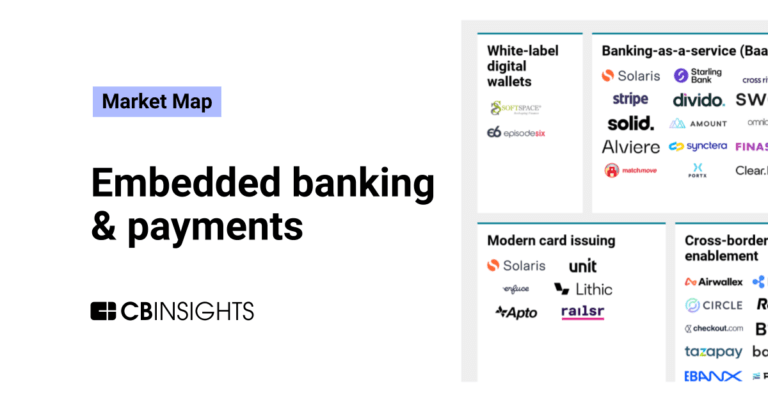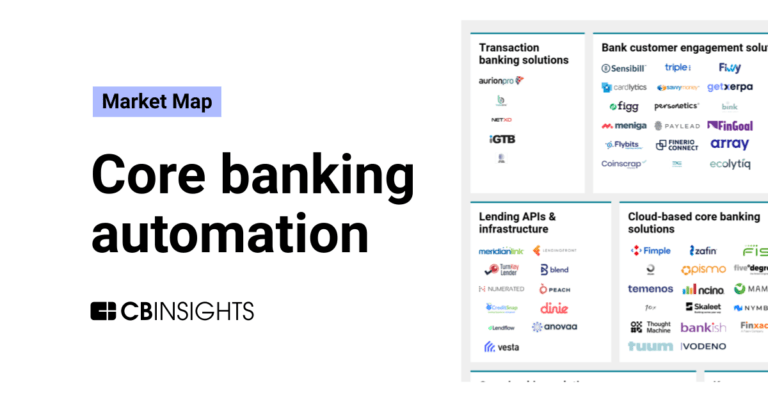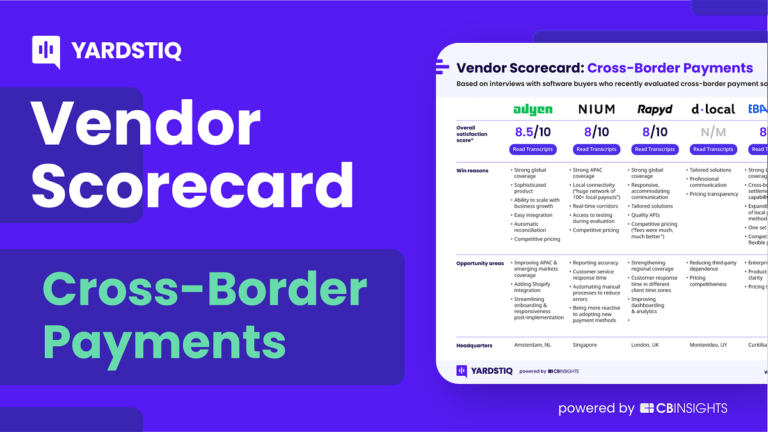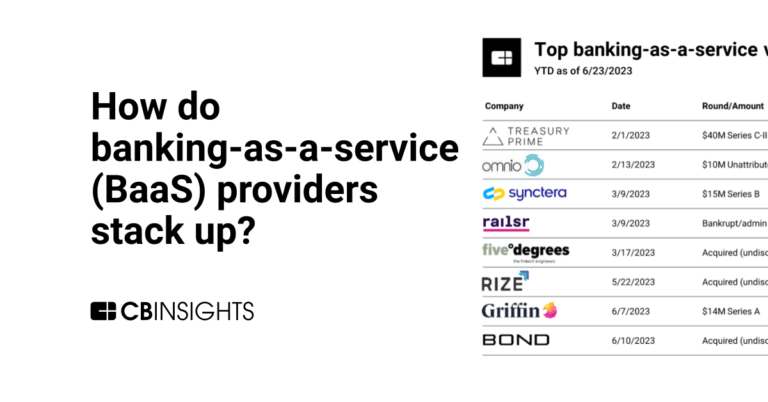
Railsr
Founded Year
2016Stage
Convertible Note | AliveTotal Raised
$188.34MLast Raised
$24M | 1 yr agoMosaic Score The Mosaic Score is an algorithm that measures the overall financial health and market potential of private companies.
-69 points in the past 30 days
About Railsr
Railsr is a global embedded finance platform operating within the financial services sector. The company provides financial services including digital wallets, payment processing, and card issuance, all facilitated through API integration. Railsr's platform is designed to integrate into a brand's digital journey, offering rewards programs, loyalty points, and various types of cards. Railsr was formerly known as Railsbank. It was founded in 2016 and is based in London, England.
Loading...
Railsr's Products & Differentiators
Banking as a Service
All the APIs, operations, and regulation needed to embed bank accounts, send money, receive money and collect money capabilities into an existing consumer experience.
Loading...
Research containing Railsr
Get data-driven expert analysis from the CB Insights Intelligence Unit.
CB Insights Intelligence Analysts have mentioned Railsr in 4 CB Insights research briefs, most recently on May 8, 2024.

May 8, 2024
The embedded banking & payments market map
Jan 4, 2024
The core banking automation market map
Jan 23, 2023 report
Top cross-border payments companies — and why customers chose themExpert Collections containing Railsr
Expert Collections are analyst-curated lists that highlight the companies you need to know in the most important technology spaces.
Railsr is included in 4 Expert Collections, including Regtech.
Regtech
1,453 items
Technology that addresses regulatory challenges and facilitates the delivery of compliance requirements. Regulatory technology helps companies and regulators address challenges ranging from compliance (e.g. AML/KYC) automation and improved risk management.
Fintech
13,413 items
Excludes US-based companies
Fintech 100
749 items
250 of the most promising private companies applying a mix of software and technology to transform the financial services industry.
Digital Banking
871 items
The open banking ecosystem is facilitated by three main categories of startups including those focused on banking-as-a-service, core banking, and open banking startups (i.e. data aggregators, 3rd party providers). These are primarily B2B companies, though some are also B2C.
Latest Railsr News
Oct 30, 2024
Adoption of Embedded Finance Surges Among Swiss Consumers Get the hottest Fintech Switzerland News once a month in your Inbox In Switzerland, the adoption of embedded finance is growing rapidly, with 76.3% of consumers having used banking services integrated into non-financial apps and platforms, according to a study by tech consultancy Synpulse8. This data, collected from a survey and interviews with 1,026 consumers and more than 70 industry stakeholders between October 30, 2023, and April 27, 2024, reflects high adoption across major consumer groups. Basis usage, non-usage by gender The report, released in September 2024, reveals a clear correlation between digital skills and the likelihood of using embedded finance services, with higher digital skills being associated with higher usage rates and lower rejection rates. Among Swiss embedded finance users, 64.6% reported having good or very good digital know-how, with 46.5% falling into the “good” category and 18.1% in the “very good” category. Within this group, only 28% express reluctance to use embedded finance services. In contrast, among individuals with “partial”, “rather poor”, or “very poor” digital skills, only 35.4% were embedded finance users. Usage rate significantly dropped as digital skills declined, with 72% of people in this category expressing reluctance to use embedded finance services. Specifically, 46.7% were somewhat opposed. Basic usage, non-usage and digital skills, Source- Embedded Finance und Banking as a Service in der Schweiz- Outlook Studie 2024, Synpulse8, 2024 The study also examined the drivers behind the adoption and usage of embedded banking services. Speed and efficiency emerged as the primary motivators, cited by 43.5% of respondents, followed by cost savings (17.8%). Access to banking services, increased security, and personalization ranked in subsequent positions. Drivers for current use of embedded banking, Source: Embedded Finance und Banking as a Service in der Schweiz: Outlook Studie 2024, Synpulse8, 2024 Adoption of embedded finance among non-banks Despite robust consumer interest, only 40% of surveyed “embedders”, or the non-banking companies that could integrate financial services, offered embedded banking services, while 60% did not. Reasons for not integrating these services included a lack of understanding (33%), ongoing evaluations of these services (22%), and unfamiliarity with the concept (11%). That being, 55.5% of respondents expressed potential interest in offering embedded finance, while only 11% categorically were firmly against it. This indicates strong growth potential. Reasons for not offering embedded banking, Source: Embedded Finance und Banking as a Service in der Schweiz: Outlook Studie 2024, Synpulse8, 2024 Looking at the most prominent embedded finance products offered by non-banking companies, the study found that more than 20% of participating embedders provided retirement planning, financing, and payment services. More specifically, private accounts and QR payments (14.3%), digital mortgages (15.8%) and third-pillar offerings (60%) were the most offered products within these verticals. Adoption of BaaS The study also looked at the adoption of banking-as-a-service (BaaS) among Swiss banks, revealing a growing recognition of the offering’s strategic importance. Of the banks surveyed, 64.9% said they were already engaging in BaaS collaborations with other banks and non-bank organizations, indicating strong momentum. However, 35.1% had not entered the space yet, stating that were currently evaluating their options (29.2%), did not understand it sufficiently (25%), and had made a deliberate choice not to proceed with such offerings (25%). Reasons for not offering BaaS, Source: Embedded Finance und Banking as a Service in der Schweiz: Outlook Studie 2024, Synpulse8, 2024 When examining current BaaS services, payments emerged as the most prevalent BaaS offering (36.8%), followed by retirement planning (19.7%) and financing at (17.1%). Savings services were the least represented, making up only 10.5% of existing BaaS portfolios. Banks were also asked about their views on the revenue potential of different banking services within BaaS. Their answers varied with investment services leading at 80%, followed by savings at 75%. Financing and retirement planning were perceived as less lucrative, with 58.3% and 59.1%, respectively. Yet, each category achieved over 50% in revenue potential, underscoring the financial viability across the spectrum of BaaS offerings. Economic relevance of BaaS offering by vertical, Source: Embedded Finance und Banking as a Service in der Schweiz: Outlook Studie 2024, Synpulse8, 2024 New embedded finance partnerships The embedded finance industry in Switzerland is expected to grow by 5.7% annually through 2029, fueled by the integration of financial services into digital platforms, according to ResearchAndMarkets.com. In October 2023, embedded finance specialist additiv supported Coop in launching Coop Finance+ app, a comprehensive app for integrated financial services. At launch, Coop Finance+ offered banking services, payment transactions and pension solutions, in collaboration with Hypothekarbank Lenzburg,Vanguard, OLZ, Liberty, and Glarner Kantonalbank as service providers orchestrated on additiv’s platform. More recently, in July 2024, Swiss4 introduced a financial app utilizing technology from Marqeta, a company that specializes in modern card and payment solutions. This app combines financial services and high-end lifestyle management, featuring a multicurrency account, payment and foreign exchange services, as well as services for organizing activities such as travel, hospitality and gastronomy.
Railsr Frequently Asked Questions (FAQ)
When was Railsr founded?
Railsr was founded in 2016.
Where is Railsr's headquarters?
Railsr's headquarters is located at 1 Snowden Street, London.
What is Railsr's latest funding round?
Railsr's latest funding round is Convertible Note.
How much did Railsr raise?
Railsr raised a total of $188.34M.
Who are the investors of Railsr?
Investors of Railsr include Moneta VC, D Squared Capital, Embedded Finance, Anthos Capital, Outrun Ventures and 24 more.
Who are Railsr's competitors?
Competitors of Railsr include BM Technologies, CleverCards, Nium, Alviere, Solaris and 7 more.
What products does Railsr offer?
Railsr's products include Banking as a Service and 2 more.
Loading...
Compare Railsr to Competitors
Seyula.io is a technology company focused on the financial services sector. The company provides a unified banking API that allows customers to securely connect their bank accounts to various applications. Seyula.io primarily serves businesses in the lending, personal finance, consumer payments, banking & brokerage, and business finances sectors. It is based in United Arab Emirates.

Teller is a company that focuses on providing API solutions for bank accounts in the financial technology sector. Their main service involves offering an easy-to-use API that allows users to connect their bank accounts to applications, enabling account verification, money transfers, payments, and transaction viewing. The company primarily serves the financial technology industry. It was founded in 2014 and is based in London, England.

Yapily is an open banking infrastructure platform that specializes in providing secure connectivity between customers and banks across Europe. The company offers services that enable access to financial data and the initiation of payments, aiming to facilitate the creation of personalized financial experiences. Yapily primarily serves industries such as payment services, i-gaming, accounting, lending and credit, crypto, property technology (PropTech), investing, and digital banking. Yapily was formerly known as Acacia Connect. It was founded in 2017 and is based in London, United Kingdom.
Fabrick is a open finance platform. The company offers payment solutions that enable and foster a fruitful exchange between players that discover, collaborate, and create solutions for end customers. Fabrick was founded in 2018 and is based in Biella, Italy.

Solaris is a technology company that specializes in embedded finance solutions within the banking sector. The company provides a banking-as-a-service platform that enables businesses to integrate digital banking, payment, and lending services into their products. Solaris primarily serves industries that require embedded financial services, such as the travel and mobility sectors. Solaris was formerly known as Solarisbank. It was founded in 2016 and is based in Berlin, Germany.

TrueLayer is an open banking platform that specializes in the financial services industry. The company offers a suite of products that enable instant bank payments, fast and verified payouts, streamlined user onboarding, and variable recurring payments, all designed to facilitate safer and more efficient financial transactions. TrueLayer primarily serves sectors such as e-commerce, gaming, financial services, travel, and cryptocurrency markets. TrueLayer was formerly known as Finport. It was founded in 2016 and is based in London, United Kingdom.
Loading...
